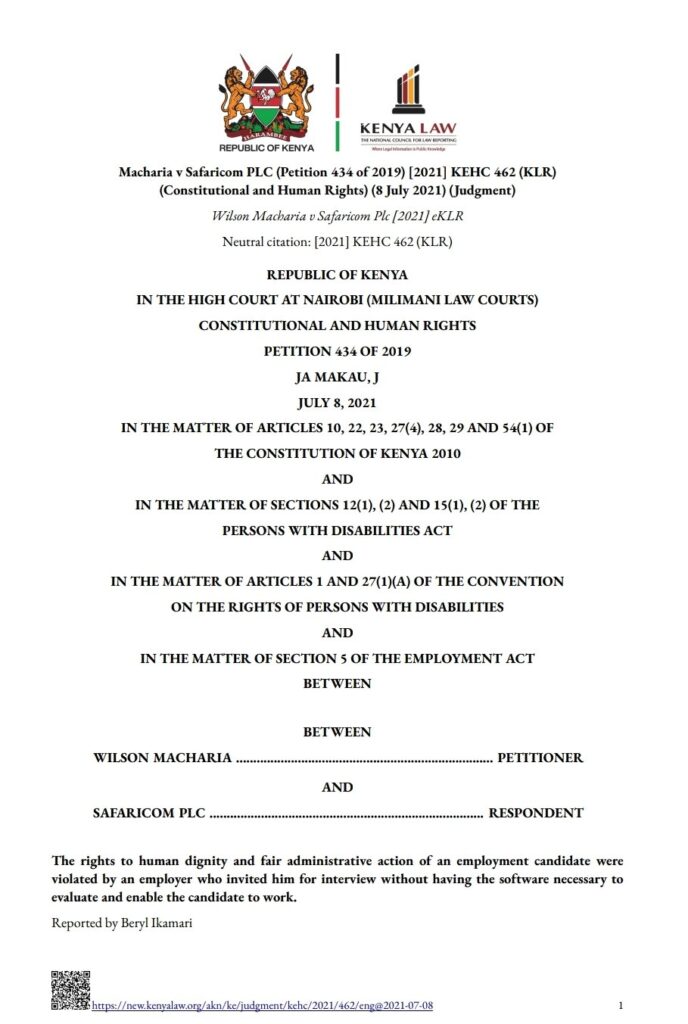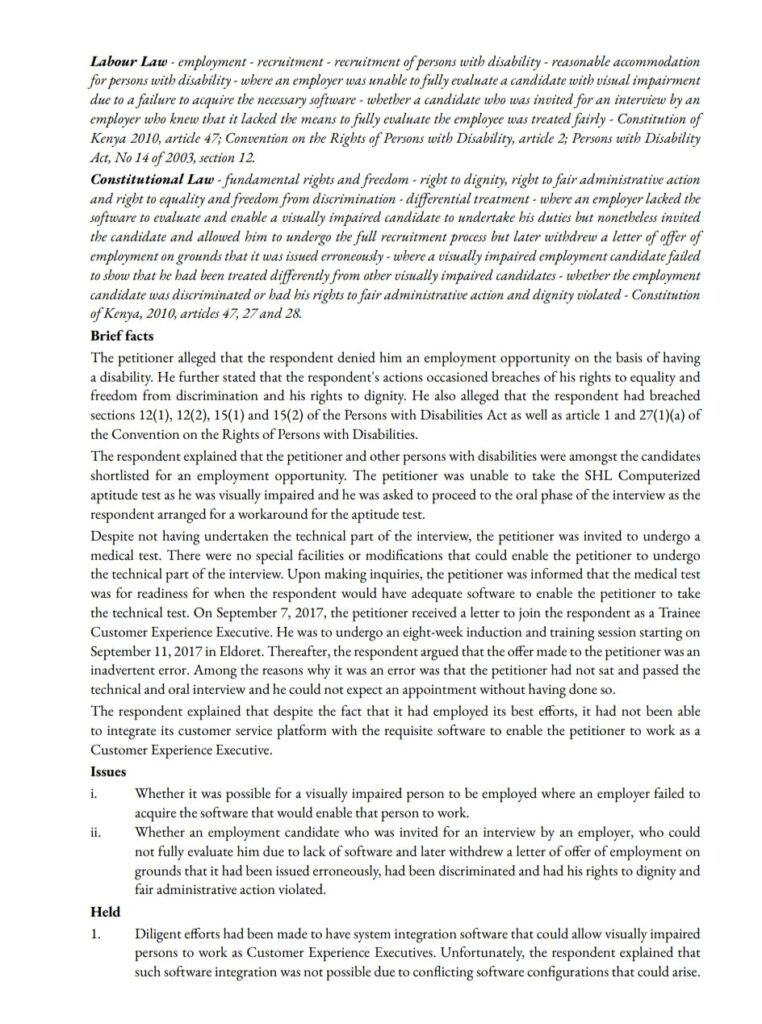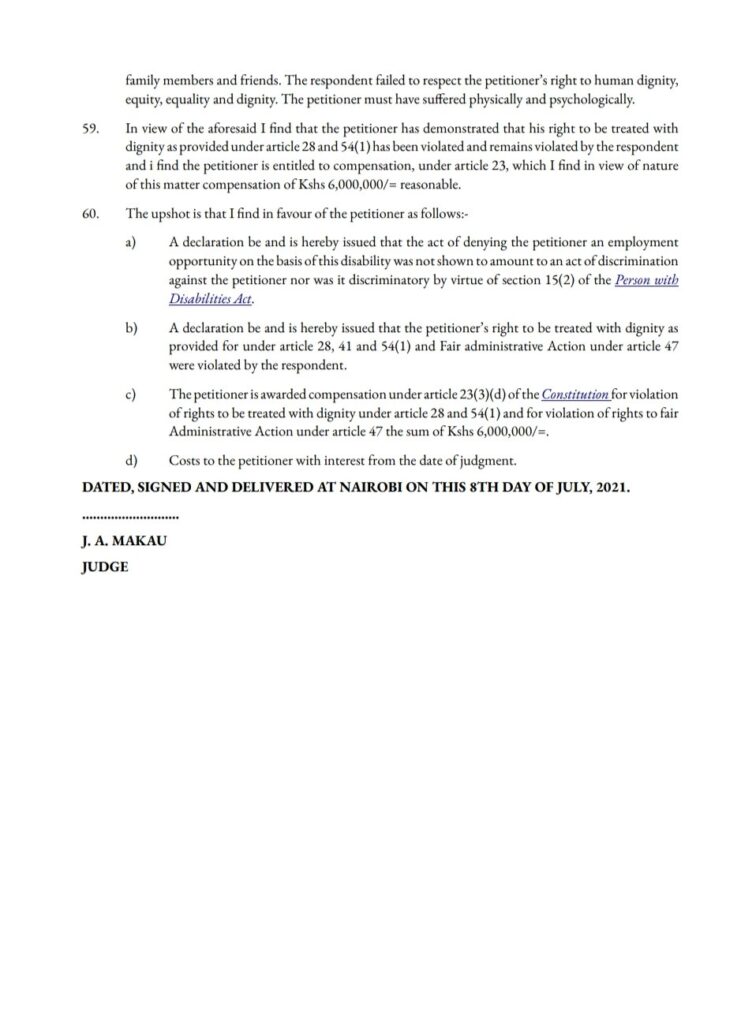Years after a job interview that ended in disappointment, Wilson Macharia’s story has become a symbol of justice for persons with disabilities in Kenya. The visually impaired man finally found victory in court when the High Court in Nairobi ruled that Safaricom PLC must pay him Kshs 6 million in compensation for unfair treatment and violation of his dignity.
The case revealed how a company that once promised inclusivity failed to honor that commitment when it mattered most.
The events leading to the court’s decision began back in August 2016 when Safaricom advertised a Customer Experience Executive position.
The advert proudly stated that the company was an equal opportunity employer that would not discriminate against anyone, including persons with disabilities.

Encouraged by that message, Macharia, who is legally blind, applied for the job. His qualifications impressed the recruiters, and he was shortlisted for interviews scheduled for July 2017.
The selection process had two stages a computer-based test and an oral interview. Due to his visual impairment, Macharia was unable to complete the computer test. Safaricom acknowledged his situation and allowed him to continue with the oral interview and even go for a medical examination.
The company also assured him that it was working to get special software that would allow visually impaired employees to work effectively.
Everything seemed promising, and Macharia’s confidence grew when he received an offer letter on September 7, 2017, stating that he had been hired and would begin training in Eldoret four days later.

However, his excitement was short-lived. Just days before he was supposed to report, Safaricom informed him that the job offer had been withdrawn.
The company claimed the letter was sent by mistake and that it could not proceed with his employment because the assistive software was not yet available.
They also cited budget challenges and data security concerns linked to M-PESA systems. For Macharia, this sudden reversal was devastating. He had already celebrated the opportunity, informed friends and family, and made plans for his new life.
Feeling betrayed, he took the matter to court in 2019. He argued that Safaricom had discriminated against him because of his disability, violating his constitutional rights to dignity, equality, and fair administrative action.
He also cited the Persons with Disabilities Act and the international Convention on the Rights of Persons with Disabilities, both of which require employers to make reasonable adjustments to accommodate disabled workers.

Safaricom defended itself by saying it never intended to discriminate. The company explained that it was working on a project to hire visually impaired staff but was unable to integrate the assistive software into its systems.
It argued that hiring Macharia before solving the technical challenges would have risked customer data security. Safaricom also pointed out that it had employed other people with disabilities, proving its commitment to diversity.
Justice J.A. Makau, who presided over the case, found that while Safaricom might not have intentionally discriminated, it failed to treat Macharia fairly.
The company allowed him to go through every recruitment stage, gave him false hope, and then withdrew the offer without proper explanation. The judge ruled that these actions violated Macharia’s dignity and right to fair administrative treatment.
He also emphasized that modern technology provides many tools that allow visually impaired people to work effectively, and Safaricom should have been better prepared.
The court ordered Safaricom to pay Macharia Kshs 6 million in compensation for the emotional distress and humiliation he endured. The ruling sent a strong message about the importance of fairness, accountability, and inclusion in Kenya’s workplaces.





















Add Comment